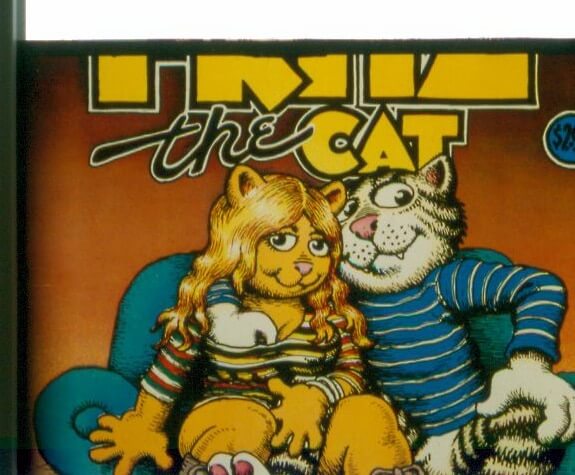
I told him, "People will probably run the other way once they've seen the film." "People sent him reviews when the film played in the New York and Toronto film festivals, and now he's afraid he won't be able to walk down the street without being mobbed. In 1991, Crumb left the coun try, disgusted by the crassness of American culture, and went to live in the South of France with his wife and their 12-year-old daughter, Sophie. Those who stayed for the audience Q & A seemed impressed by the film's craft but saddened by its subject.Īsked how he was able to draw Crumb's trust, Zwigoff said there were three reasons: "I've been friends with him a long time, he liked my first film ("Louie Bluie," 1985) a lot and he didn't think anybody would see it." At the screening I attended, a number of people walked out.

It isn't everyone's idea of entertainment, and it doesn't offer its audience any lollipops or false optimism. "Crumb" makes a solid argument for its subject's importance as an artist - Time magazine art critic Robert Hughes calls him "the Brueghel of the last half of the 20th century" - but is less memorable for its demonstration of Crumb's skill and imagination than it is for the frankness of the artist and his hatched-in-hell family. Son Jesse is a budding illustrator who says, "Sometimes I want to express affection to the old man, but he just can't do that." Zwigoff also interviews Crumb's caustic wife, Aline, who rationalizes her husband's tom-catting and says, "He'd rather be a brain in a jar than a person in a body." His first wife, Dana, recalls his early fame - "It seemed like it happened in just a few weeks." Two ex-girlfriends are interviewed, one of whom, a porn-mag editor, describes Crumb's genital endowment. Charles committed suicide a year after Zwigoff filmed him. Charles, the brother who inspired Crumb's interest in drawing, is the most pathetic: At 50, he's never moved out of his mother's house in Philadelphia ("I made a few feeble attempts a long time ago"), bathes every six weeks and keeps a thin lid on his insanity with tranquilizers and anti-depressants.įull of lingering anger against his "sadistic bully" father and crippled by jealousy of his brother's success, Charles describes old wounds and traumas, as Crumb sits and laughs. Today, Maxon, the youngest, begs on the street and meditates on a bed of nails in his fleabag hotel room on San Francisco's Sixth Street. Reminiscent of the Maysles Brothers' "Grey Gardens," another tragedy of unmet dreams, "Crumb" doesn't stop at capturing Robert Crumb in all his self-loathing, misogynistic, occasionally suicidal eccentricity, but takes us inside the nightmare of Crumb's family: his late father, a rigid Marine who broke Crumb's collarbone when he was 5 his mother, an amphetamine addict-turned-recluse two sisters, neither of whom appears in the film and two brothers, both of whom recall a fierce sibling rivalry.



In opening remarks to a sold-out crowd Monday afternoon at the Holiday Village Cinema here, Zwigoff, a friend of Crumb's since 1972, said he was embarrassed by his own work: "It's a very personal film, and very revealing of myself, even though it's about someone else." (Robert) Crumb, the fabled cartoonist who achieved underground notoriety with his late-'60s "Keep on Truckin' " graphics and his randy, grotesque LSD-inspired drawings in Zap Comix, "Crumb" is a fascinating, sometimes hellish portrait of an artist who finds no comfort in fame but survives each day with a dose of morbid humor. Zwigoff, 46, is here to show "Crumb," one of the strangest, most disturbing documentaries in years, and one that could become a crossover theatrical hit - along the lines of "My Brother's Keeper" or "The Thin Blue Line." (It's already been acquired by a distributor, Sony Classics, which plans to release the film April 14 in New York and May 26 at the Castro in San Francisco.Īn intimate look at R.


 0 kommentar(er)
0 kommentar(er)
